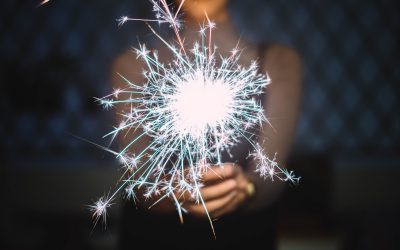Seven Weeks (Forty-Nine Days): How to Perform the Rituals Correctly
Have you ever heard of the “First Seven and Final Seven Days” after a person passes away, and the belief that there are rituals to be observed for forty-nine days, or that the soul of deceased will return on the seventh day? What are the origins of these beliefs, and how should these rituals be observed after the passing of a family member? What happens if these rituals are not observed?
First, it is important to clarify that Chinese spirituality is inseparable from the integration of three major faith systems, namely Buddhism, Taoism and folk religion. Many may identify as Buddhists or Taoists, but upon closer scrutiny, they are more likely to be followers of a mixed form of folk religion.
The Seven Weeks (Forty-Nine Days) of Buddhism
According to Buddhism, there is a transitional period between death and rebirth in the six realms called the “intermediate state” (Bardo). This period can last from a few seconds up to forty-nine days. The Tibetan Book of the Dead mentions that the intermediate state is a phenomenon of birth and death, and each “death” is followed by a “waking” into another intermediate state. The “First Seventh” is when the soul of the deceased “awakens”, and performing the relevant ritual at this time grants them the greatest blessings.
In Buddhist funeral rites, chanting sutras and conducting rituals every seven days helps the deceased reflect and move on to the next stage. It is a form of education and guidance. Simultaneously, the living can also receive teachings on life from the rituals.

The Seven Weeks (Forty-Nine Days) of Taoism
Taoism holds the belief that human beings are born with a balance of yang (positive) and yin (negative) energies, and must practise cultivation to maintain this balance. Pure yang leads to immortality, while pure yin results in death and becoming a ghost. The reason death occurs is due to lack of cultivation according to the principles of Taoism. However, cultivation here refers more to virtues like loyalty, filial piety, benevolence and faith, rather than supernatural powers or abilities.
Human beings have “three souls and seven spirits”, and a spirit is dispersed every seven days after death, until all are exhausted after forty-nine days. Therefore, Taoists can perform scripture recitations or repentance rituals, such as the “Ascension and Attainment of the Tao Sutra”, the “Fengdu Sutra for the Removal of Sins and Blood Lake”, the “Sutra of the Removal of Grievances and Sins”, the “Ten Directions Sutra for Relieving Suffering” and others, to help the spirits to repent their virtues and seek salvation from the deities. The living can also learn Taoist teachings through the scriptures.

The Seven Weeks (Forty-Nine Days) of Folk Religion
Compared to Buddhism and Taoism, the “Seven Weeks (Forty-Nine Days)” beliefs of folk religion are a mixture of myths, legends, and superstitions, local customs and social traditions. A careful comparison will reveal discrepancies between these beliefs and Buddhist and Taoist teachings.
Legend has it that after Emperor Taizong of Tang passed away, his successor burned joss paper money for him every seven days for forty-nine days, which then became a common practice among the people. However, Buddhism and Taoism do not advocate material desires, especially after death. Burning joss paper money and offerings reflect our projection of the living world onto the afterlife.
Some believe in “returning souls” on the seventh day, with spirits depicted as having supernatural powers to appear in dreams or harm people. However, Buddhists and Taoists view spirits as confused and helpless, and that they cannot even protect themselves, let alone possess supernatural abilities or harm the living.
In some places, there are customs of only performing rituals for a “single seventh” for fear that bad things will come in twos. In Buddhism and Taoism, the chanting of scriptures at every seventh day is to educate the spirits and guide them to repent and move on to the next stage, which is definitely considered a “meritorious deed”. Therefore, the fear of bad things happening in twos is unfounded.
In some regions, married daughters may only provide offerings for the fifth seventh day, while the sons are expected to handle the other seventh days. China’s vast geography and inconvenient transportation in ancient times meant married daughters might not be able to return home for the funeral or for each seven-day period, leading to the custom of “Fifth Seventh” for daughters. Additionally, the patriarchal preference meant sons were expected to perform the main rituals. In modern times, emphasizing gender equality and considering the possibility of having no sons or daughters living nearby, it makes no sense for daughters to only participate in the “Fifth Seventh’.
Respect and Blessings
So how should we observe the “Seven Weeks (Forty-Nine Days)” rituals? There is no right or wrong when it comes to faith. One can turn to their own belief system, whether it be Buddhism, Taoism, folk religion or any other religions. The Chinese society is inherently a community of mixed beliefs. Having mutual respect, maintaining family harmony while at the same time holding respect and blessings for our ancestors are the best approaches.

Nirvana Care Professional Department – Ritual & Culture Management
Exploring the impact and development of Chinese culture on Malaysian society and focusing on the origins of the community’s funeral cultures, we have borrowed and adapted ancient customs to nurture the development, cultivation, deeper understanding and growth of Nirvana Care’s bereavement care services.
About the Author
Ng Ai Ling, Nirvana Care Professional Department – Ritual & Culture Management
Ms. Ng has a master’s degree in Chinese literature from Taiwan’s National Dong Hwa University and many years of experience in writing and research. She is currently a newspaper columnist and has been publishing articles on Hong Kong and Taiwan online platforms for many years.
The difference between columbarium and mausoleum
The difference between columbarium and mausoleum The words columbarium and mausoleum are sometimes used interchangeably but both terms actually refer to very distinct memorial structures. The mausoleum (or mausolea in plural) has always been associated with the...
Memorial options for cremations
Memorial options for cremations Upon cremation, the ashes or “cremains” are usually collected by the crematorium and returned to the family in an urn. At this stage, it is up to the bereft family to decide on how to memorialise their loved one. Professional...
Columbaria and cremation niches
Columbaria and cremation niches A columbarium is a construct used for the storage or final resting place of cremated remains in cinerary urns. They can be free standing structures, or part of a building with many niches resembling dovecotes. In fact, the term...
Burial versus cremation
Burial versus cremation When referring to burial or cremation, this usually relates to the final stage of the funeral involving the disposition of remains. In burial, the remains are interred whole below ground in a cemetery or in some cases, a crypt or mausoleum. In...
The Funeral
The Funeral Funerals tend to be very spiritual in nature and are generally dependent on the deceased’s cultural and religious background. The customs and practices may vary from place to place even for similar religions. Regardless of these differences, funerals are...
Meeting the bereavement care provider
Meeting the bereavement care provider service representative or consultant Owing to the unpredictability of death, bereavement care providers are generally on call 24 hours a day all year round and will be ready to assist at just a phone call. An understanding service...
What are bereavement care providers?
Bereavement care providers are generally professional establishments that engage in death care, burial preparation, funeral and memorialization of the deceased.
Nirvana Life Plans
Nirvana Life Plans Funeral planning is a complex and sensitive matter. Whether as a pre-plan or an immediate need, knowing where to begin and deciding what needs to be done can be daunting for many, especially for those who have never been directly involved in the...
Why is pre-planning important?
Life is uncertain; but death isn’t. That is the universal truth that is shared by all regardless of age, status, race or gender. Anyone who has lived through the unfortunate passing of a loved one will know how devastating it can be.
When is the best time to pre-plan?
When is the best time to pre-plan? The topic of death is a delicate one and it is understandable many are uncomfortable to discuss it. However, one should contemplate on this question: which comes first, tomorrow or death? We can never know for sure, but death...


























